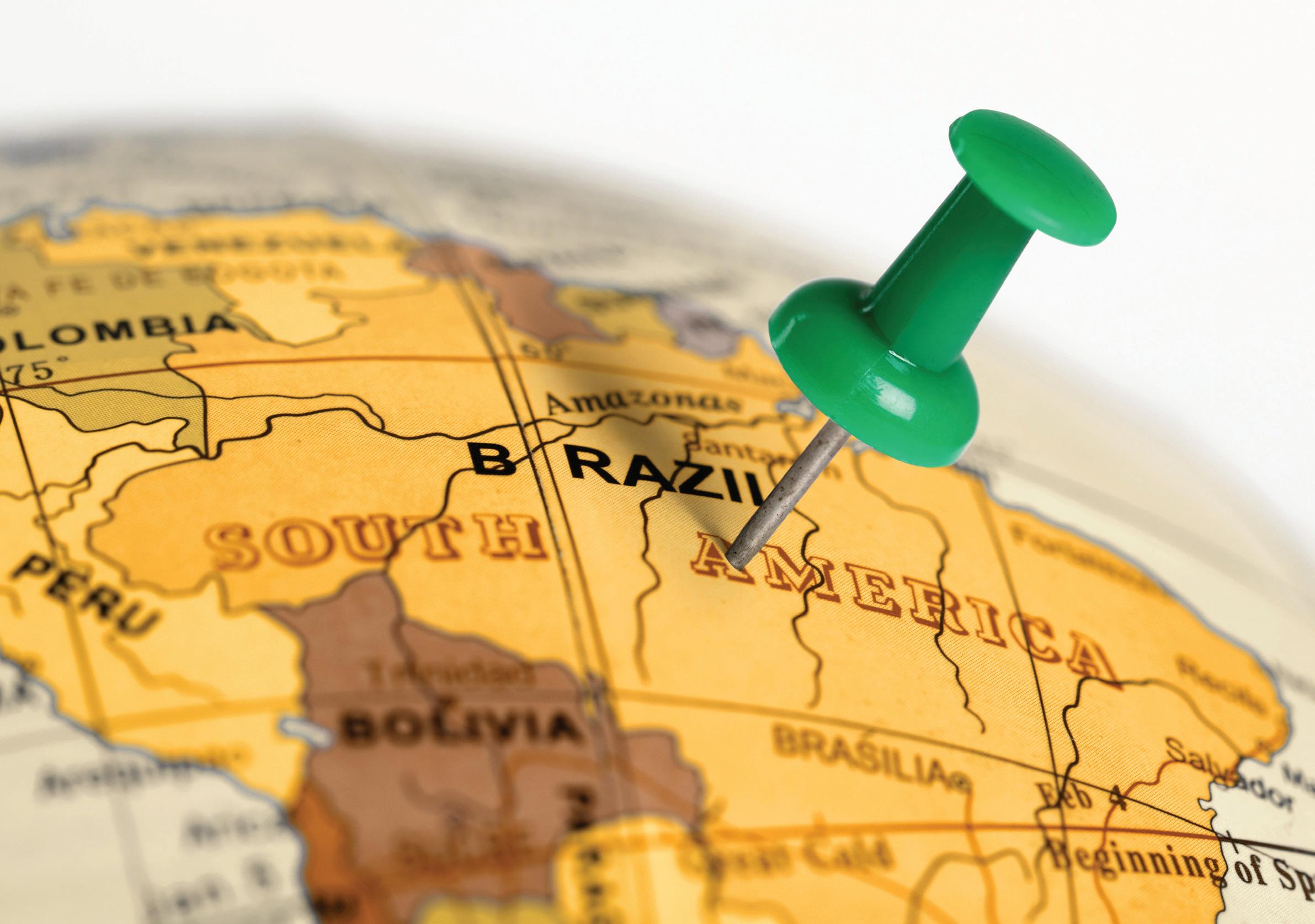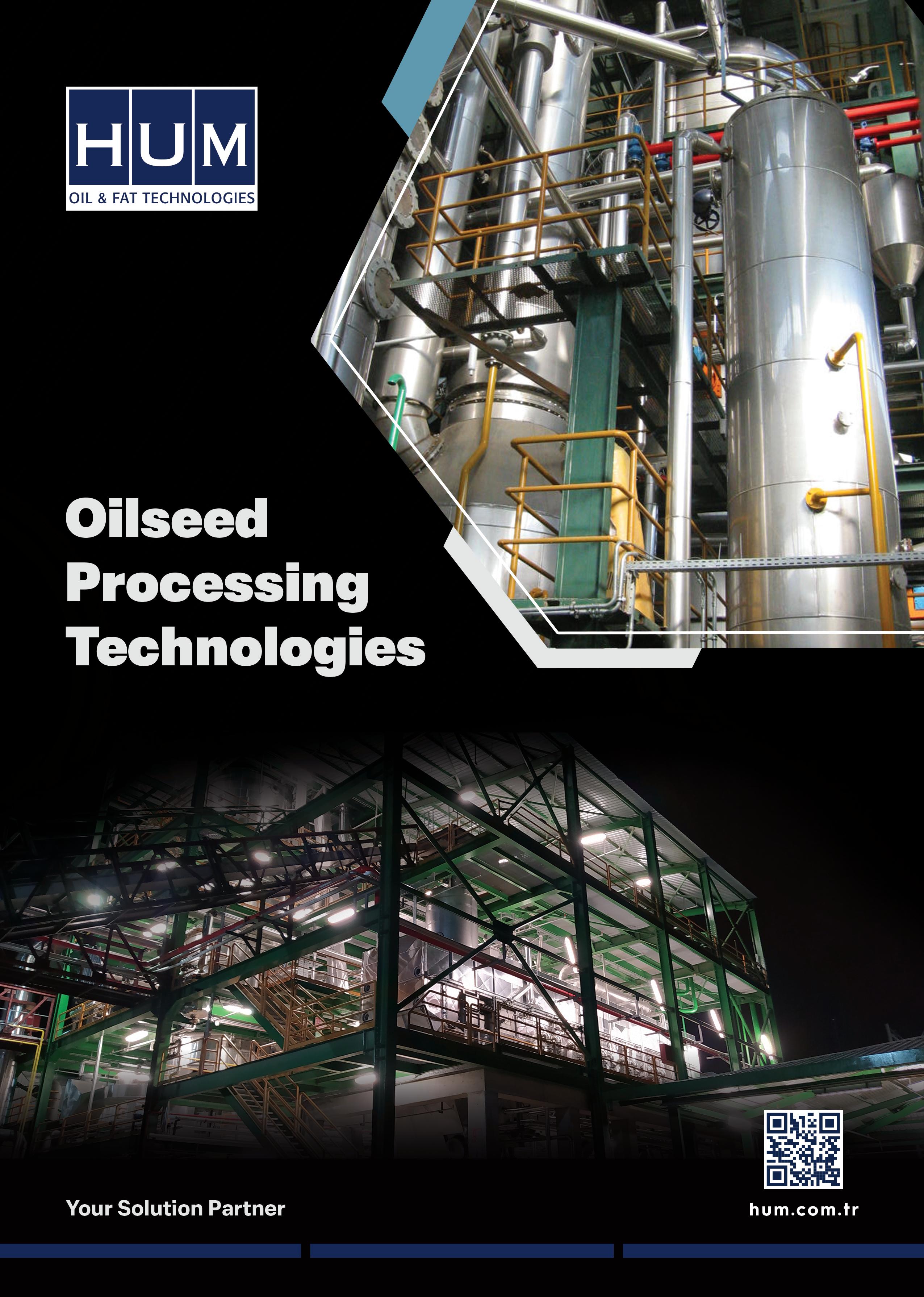
6 minute read
President under pressure
The ultra-conservative Bolsonaro reconnected with Brazil’s agribusiness over the past four years although he was not a dedicated supporter of the biofuels industry, partly because he valued the support of a key political base – lorry drivers wanting access to cheaper fossilfuel based diesel. Bolsonaro wanted to keep biofuel mandates low to reduce prices for truckers, mirroring other Latin American government policies, due to rising prices of soyabean oil (a key raw material for the biofuels industry) during a time of heavy exporting of the commodity.
Many rural leaders not only campaigned for Bolsonaro, but also backed the invasion of the country’s Presidential Palace, Congress and Supreme Court buildings in the capital, Brasília, on 8 January. Some still insist they do not accept the election results, despite no evidence of fraud in Lula’s narrow victory.
Biodiesel mandate increased Lula now has an opportunity to build support among farmers, particularly soyabean producers, by reversing moves made by Bolsonaro that weakened the biofuels sector.
On 17 March, the country’s national energy policy committee CNPE decided to raise Brazil’s biodiesel mandate from the current 10% level (B10) to 12% (B12) from April with a progressive ramp-up in mandates to reach 15% (B15) by 2026.
The increase in the blending mandate is broadly in line with industry expectations, although the ramp-up schedule is more cautious than the country’s biodiesel sector had advocated for, which previously said that B15 could be reached by March 2024.
“Our industry has a productive capacity that is way, way beyond [its current level],” says Daniel Amaral, executive of economics and institutional relations of the Brazilian Association of Vegetable Oil Industries (ABIOVE), a key representative of the soyabean oil industry.
He says the industry has the capacity “to even do an 18% mix”.
Nonetheless, the blending mandate increase has been welcomed by ABIOVE. “This initiative brings predictability for the biodiesel sector to intensify its investments and puts Brazil on the pathway to lead global diesel decarbonisation efforts,” the association said in a note immediately after the announcement.

Demand boost
A 15% mandate could have boosted local demand to 9.5bn litres of biofuels in Brazilian petrol stations, considerably higher than the annual 8.1bn litres with B10, according to an industry memorandum signed by business leaders and analysts requesting higher mandates from Lula’s team shortly after he won the elections.
The memorandum added that the 10% mandate in 2021 – reduced from B13 in a bid to control domestic inflation – had caused a fall in demand to 6.3bn litres, making 53% of the industry inactive.
Brazil has 57 biodiesel factories in 15 states. Its full production capacity is 13.3bn litres, according to the country’s national agency of petroleum, natural gas and biofuels ANP (Angêcia Nacional do Petróleo).
Brazil’s new minister of mines and energy Alexandre Silveira also received a plea from the biofuel sector to reverse another Bolsonaro decision: end an open borders policy in the import of biofuel feedstocks, so the country’s industry can better compete with overseas suppliers.
Brazilian business leaders and analysts have argued open markets are unfair as some foreign companies have less stringent production rules and standards than those imposed in Brazil, notably on worker welfare protection.
The document sent to the Lula administration added that encouraging imports of feedstocks now that the COVID-19 pandemic has waned worldwide, and energy demand is rising globally, could “disorganise the entire national productive chain”.
Both topics were part of Lula’s personal conversation with US President Joe Biden during his visit to Washington DC on 10 February. Figures from the Brazilian government’s Energy Research Office (EPE — Empresa de Pesquisa Energética) show that amid declining domestic biofuel production in 2021, Brazil imported 423,300m³ of ethanol, 62.3% of which came from US companies.
Sustainability
ABIOVE’S Amaral has been taking part in conversations with Lula’s team, telling OFI that sustainability will be a bigger part of the discussion under the current administration than its predecessor.
“The soyabean industry has a lot of experience. There’s a broad space for investment if the infrastructure improves, especially roads, with potential for increasing exports.”
Amaral says ABIOVE members believe “in continuous dialogue with the new administration” to work more intensely on biofuels consumption in Brazil, while seeking a boost in exports.
“That’s our goal – to assure we are competitive on those two fronts.”
The new blending announcement will mean higher domestic demand for biodiesel and upstream products, particularly for soyabean oil, which represents about 70% of the feedstock used to produce biodiesel in Brazil, AgriCensus wrote on 17 March.
According to estimates that ABIOVE shared with AgriCensus at the beginning of the year, B12 would lift Brazil’s soyabean oil demand from the biodiesel sector by about 800,000 tonnes/year.
Amaral also says the country is “expecting a super harvest of soyabeans of around 153M tonnes this year”.
This means room to boost export sales of soyabean oil.
AgriCensus wrote that Brazil’s 2022/23 soyabean oil output is forecast at 40.4M tonnes and its soyabean oil export programme had been extremely robust since the beginning of the marketing year. Any possible downgrade in domestic consumption due to B12 rather than B15 could be offset by higher export numbers, it added.
Environmental pressure
As the president following on from Bolsonaro, Lula is under pressure from environmentalists, who were frozen out from policy influence under the previous administration. Bolsonaro’s government was accused of promoting deforestation, especially in the Amazon basin; taking no action against intentional fires; providing incentives to loggers and miners; and enabling the use of one or more of the 2,182 pesticides approved by him.
Some agri-business operators have benefited indirectly from such actions –one is Brasil BioFuels (BBF), a company of 6,000 workers founded in 2008. BBF is Latin America’s biggest producer of palm oil, expected to become a bigger part of the blend used in diesel.
The government’s relations with this company are multi-faceted – it makes biodiesel, green diesel and sustainable aviation fuel, which fits its environmental policy, as does BBF’s ability to generate renewable electricity for Brazil’s poor northern region, replacing fossil fuels.
But expansion of production will need to avoid destroying rainforest as the new administration is under pressure to implement a zero-deforestation policy.
BBF is optimistic it can square the biofuel/deforestation circle.
“We believe in sustainability that is linked to innovation, using our resources available in Brazil’s north. We are firm in our journey to recover the Amazon with the sustainable growing of palm oil,” Milton Steagall, BBF’s CEO says.
BBF produces more than 200,000 tonnes of palm oil in its facilities, all based in Brazil’s north, with the majority used in biodiesel. Its Amazonbio factory in the city of Ji-Paraná, in the state of Rondônia, can produce 32M litres/year of biodiesel. The company’s new 500M litres/year biofuels unit in Manaus, the capital of Amazonas state, is due to open in 2025.
Palm oil cultivation also releases fewer carbon emissions than soyabean production and generates more rural jobs because its plantation and harvest cannot be mechanised, Steagall says.
The power of compromise
Compromise solutions could be found that encourage more sustainable production of Brazilian-grown biofuel feedstocks.
If that happens, Brazil Vice President Geraldo Alckmin, a former governor of São Paulo state and a moderate, may play a key role. Serving within the broad coalition assembled by Lula (who remains a member of the centre-left Workers’ Party), Alckmin is also Brazil’s Minister of Development, Industry and Foreign Trade and has taken part in several negotiations with energy minister Silveira, who is also a moderate. They may succeed in talking to former Bolsonaro supporters. ● Mauro Fernandes, is a journalist for International News Services, UK
19-20 April 2023
European Algae Summit Lisbon, Portugal www.wplgroup.com/aci/event/europeanalgae-industry-summit
21-23 April 2023
International Conference on Rice Bran Oil Hyderabad, India https://seaofindia.com/wp-content/ uploads/2022/12/1st-AnnouncementIARBO-2023.pdf
25-27 April 2023
Argus Biofuels & Feedstocks Asia Conference
Marina Bay Sands Expo and Convention Centre, Singapore www.argusmedia.com/en/conferencesevents-listing/asia-biofuels
26-28 April 2023
Eurograin Exchange & Forum Bucharest, Romania https://eurograinevents.com/
29-30 April 2023
29th Practical Short Course: Fundamentals & New Techniques in Edible Oil Processing and Applications Denver, Colorado, USA www.smartshortcourses.com/ oilprocess29/index.html
30 April-3 May 2023
AOCS Annual Meeting & Expo 2023 Denver, Colorado, USA https://annualmeeting.aocs.org
4-5 May 2023
13th ICIS World Surfactants Conference
Hyatt Regency, Jersey City, USA https://events.icis.com/website/8544/
8-10 May 2023
Globoil International Dubai 2023
Le Meridien Hotel & Convention Centre, Dubai www.globoilinternational.com
9-11 May 2023
Sustainable Aviation Futures APAC Congress
Location: Marina Bay, Singapore www.safcongressapac.com
For a full events list, visit: www.ofimagazine.com
10-11 May 2023
FENAGRA 2023 – International Feed & Food Agroindustry Fair
Dom Pedro Expo, Campinas, Brazil http://fenagra.com.br
16-17 May 2023
Biofuels International Conference & Expo 2023
Brussels, Belgium https://biofuels-news.com/conference/
23-25 May 2023
Argus Green Marine Fuels Conference Novel Amsterdam City the Netherlands www.argusmedia.com/en/conferencesevents-listing/green-marine-fuels/ register
30-31 May 2023
RSPO Inter-American Conference 2023 Hotel Kimpton Epic, Miami, Florida, USA https://rspo.org/first-rspo-interamerican-conference-2023-spotlightsthe-americas-role-as-sustainable-palmoil-leaders/
1-2 June 2023
Veg Oil Trade 2023
Rotterdam, the Netherlands www.apk-inform.com/en/conferences/ vegoil-trade-2023/about
5-6 June 2023
4th International Congress on Mineral Oil Contaminants in Food Berlin, Germany https://veranstaltungen.gdch.de/tms/ frontend/index.cfm?l=11448&sp_id=1
5-7 June 2023
12th CESIO World Surfactant Congress
Rome, Italy https://cesio-congress.eu/
7-10 June 2023
European Fat Processors and Renderers Association (EFPRA) Congress 2023
Naples, Italy https://efpra2023naples.eu/
12-14 June
International Conference on Algal Biomass, Biofuels and Bioproducts
Waikoloa Beach, Hawaii, USA www.elsevier.com/events/conferences/ international-conference-on-algalbiomass-biofuels-and-bioproducts










